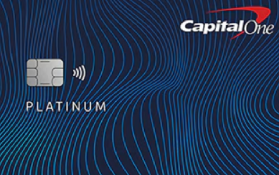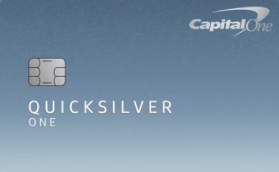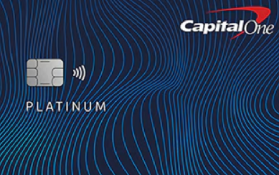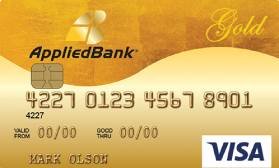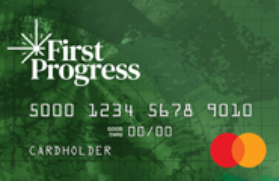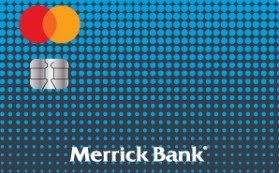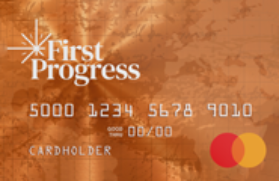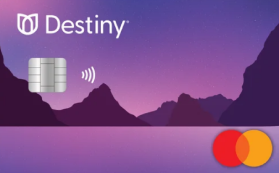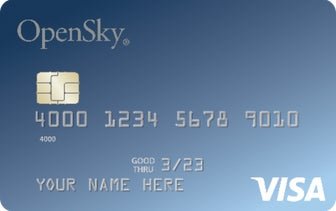Short Review of Best Credit Cards For 18 Year Old Applicants
| Name | Best for | Rewards Rate | APR | Apply |
|---|
Capital One Platinum Credit Card | Without SSN | This card doesn't offer cash back, miles or points. | 29.99% Variable | Learn more on our partner’s site |
Capital One QuicksilverOne Cash Rewards Credit Card | Fair credit | 1.5% Cash Back on every purchase. | 29.99% Variable | Learn more on our partner’s site |
Capital One Platinum Secured Credit Card | Single mom, Without SSN | This card doesn't offer cash back, miles or points. | 29.99% Variable | Learn more on our partner’s site |
Applied Bank® Secured Visa® Gold Preferred® Credit Card | 18 year old | This card doesn't offer cash back, miles or points. | 9.99% Fixed | Apply now On Applied Bank®‘s site |
First Progress Platinum Prestige Mastercard® Secured Credit Card | | 1% Cash Back rewards on payments. | 14.24% Variable | Apply now On First Progress’s site |
Merrick Bank Secured Credit Card | | This card doesn't offer cash back, miles or points. | 22.70% Variable | Apply now On Merrick Bank‘s site |
First Progress Platinum Select Mastercard® Secured Credit Card | | 1% Cash Back on payments made to your First Progress Secured credit card account. | 18.24% Variable | Apply now On First Progress’s site |
First Electronic Bank Destiny® Mastercard® | Unsecured | This card doesn't offer cash back, miles or points. | 35.9% | Apply now On First Electronic Bank‘s site |
Capital Bank OpenSky® Secured Visa® | 18 year old | This card doesn't offer cash back, miles or points. | 25.64% Variable | Learn more |
Card's description:
Capital One Platinum Credit Card
The Capital One Platinum Mastercard has no annual fee, no foreign transaction fees, gives you an opportunity to increase your credit limit in as little as six months with responsible behavior, and reports account information to all three major credit bureaus each month. Although it lacks some standard benefits, like cash back and a sign-up bonus, it has everything you need to build credit inexpensively or raise your credit limit quickly.
Read more about Capital One Platinum Credit Card
Capital One QuicksilverOne Cash Rewards Credit Card
If you’re a young adult looking to build credit and earn cash back rewards in the process, it doesn’t get simpler than the Capital One QuicksilverOne credit card, despite its $39 annual fee. It offers an unlimited 1.5% cash back reward on all purchases all year long and a chance to qualify for a higher credit limit after six months of account opening. Your rewards do not expire for the life of the account. There’s no cap on the cash back amount you can earn and no minimum redemption amount. Plus, you get plenty of redemption options to pick from.
Read more about Capital One QuicksilverOne Cash Rewards Credit Card
Capital One Platinum Secured Credit Card
Thanks to its small security deposit amount, reasonable fees, and promise to automatically review your credit limit after six months, the Platinum Secured Mastercard® from Capital One is a good option for all those looking to build credit. Unlike with most other secured credit cards, you may qualify for a credit limit that’s more than your deposit. And unlike a prepaid card, this card reports to all three major credit bureaus, allowing you to build credit with responsible behavior.
Read more about Capital One Platinum Secured Credit Card
Applied Bank® Secured Visa® Gold Preferred® Credit Card
The Applied Bank® Secured Visa® Gold Preferred® Credit Card credit card is designed for people with no credit history or bad credit. The bank doesn’t run a credit check, nor do they have any minimum credit score required for approval. Applied Bank won’t hike your APR if you miss a payment, though you’ll have to pay a late payment fee. You must also pay an annual fee of $48, which is rather steep compared to similar secured cards. Unlike most other credit cards, this one doesn’t offer a grace period, so you’ll be paying interest on your purchases from the day you make them.
Read more about Applied Bank® Secured Visa® Gold Preferred® Credit Card
Capital Bank OpenSky® Secured Visa®
The OpenSky® Secured Visa® credit card reports to all three credit bureaus, which is the key to improving your credit history, along with responsible credit behavior. The highlights of this secured card include no credit check requirement for approval and the maximum credit limit of $3,000. For these reasons, the card is worth it for those who don’t want a hard credit inquiry and would like to improve credit via an increased credit limit. On the downside, you’ll pay a $35 annual fee and a 3% foreign transaction fee.
Read more about Capital Bank OpenSky® Secured Visa®
Should I Get a Credit Card at 18?
When you are 18, building your credit score may not seem a priority. Yet, it can have a significant impact on your financial life. Your credit score determines whether you get approved for loans and the interest rates you pay. But that’s not all. Employers often run a credit check to get insight into a potential hire, and landlords use this three-digit number to decide who to rent to.
In short, the better your credit score, the easier life becomes.
A credit score, however, can’t be built in a day; it requires patience and discipline. So there’s an advantage in starting as early as possible — that is, at 18, the minimum age to be a primary cardholder for nearly all card issuers.
How to choose the best cards for 18-year-olds?
The process of selecting the right card is highly individual. A good starting point, however, is to consider your spending habits and look for cards with features matching them. Here’s a set of guidelines on things to consider when shopping for a credit card.
Annual Fee
This is the cost you pay to keep your account open. The last thing you may want while working on your credit is to take on extra costs. Some credit cards for young adults have no annual fee, and you may be better off with such a card. But if you settle for a card with an annual fee, make sure it allows you to earn enough rewards to justify it.
Sign-up Bonus Offer
Many cards offer a welcome bonus. That means new cardholders earn extra rewards, like cash back or points when they use it.

For example, the Discover it® Student Cash Back credit card automatically matches the cash back you earn at the end of the first year, dollar-for-dollar. Since this card offers a 5% cash back on up to $1500 total purchases in rotating bonus categories every quarter, maxing out this purchase limit every quarter alone will bring you home $600 in the first membership year! And that’s without the standard 1% reward you earn on all other purchases.
Rewards
As a young adult with little or no credit history, you’re likely to be ineligible for cards with lucrative reward offers. But something is better than nothing, and you can maximize your savings by looking for a card that perfectly matches your spending habits.
For example, students who plan to study abroad and travel during breaks or summer holidays may want to take a closer look at the Bank of America Travel Rewards Credit Card for Students. This no-annual-fee and no-foreign-transaction-fee card lets you earn an unlimited 1.5 points for every dollar you spend.
0% Intro APR
Credit cards with 0% intro APR on purchases and balance transfers can prove useful for someone with a big purchase coming up or a high credit card balance. The 0% intro offer, however, doesn’t last forever. Once it ends, the regular APR will apply, so aim to pay off the balance in full by then.
If you’re wondering how to pick a credit with a 0% APR, consider the length of the intro APR period. With some cards, it lasts only six months; with some others, it can last for more than a year.
For example, BankAmericard for Students offers a 0% introductory offer on both balance transfers and new purchases for the first 18 billing cycles to help you pay off purchases without interest and save money on credit card debt.
Automatic credit line review
As an 18-year-old, you may not qualify for a high-limit credit card. However, with responsible credit behavior you can, slowly but surely, increase your credit limit. In fact, some student credit cards automatically review your credit line in as little as six months.
Paying your first five card payments on time may help you get a credit line increase. Doing so can help you improve your credit utilization ratio — the percentage of total available credit that you are utilizing.
The credit utilization ratio is a key credit scoring factor, and keeping it under 30% of the available credit limit can help boost your score.
Reports to all three major credit bureaus
When your aim is to build credit, one question you should be asking yourself before signing up is — will this credit card help me build my credit? Opt for a card that reports your credit usage to all three major credit bureaus — Equifax, Experian, and TransUnion. Not all secured credit cards do this.
How to Get a Credit Card for the First Time?
As an 18-year-old, you can get your first credit card in any of the following three ways:
1. Open a Credit Card in Your Name
If you earn enough to afford monthly bill payments or can get someone to co-sign your application, consider getting a credit card in your name. The best type of starter credit card for young adults is a student credit card, assuming you are studying in college. Student credit cards usually have lower fees and rates and better rewards than other starter credit cards for first-time applicants.
But if you don’t qualify for a student credit card, that’s okay. Any credit card will do, as long as its annual fee is low and you use it responsibly.
2. Become an Authorized User on someone else’s card
If you have a thin credit file, becoming an authorized user on a friend’s or parent’s credit card can help you build credit. This strategy works best when the primary user has a long record of paying credit card bills on time because then you can benefit from the age of their account.
Keep in mind that not all credit card issuers report authorized users to the credit bureau. Picking a card that doesn’t will defeat the whole purpose because your credit score gets generated from the information present in your credit reports. So ensure the issuer reports authorized users to all three major credit bureaus before becoming one.
3. Get a Secured Credit Card
If you neither qualify for an unsecured card — a card that doesn’t require a deposit for approval — nor have a co-signer, consider getting a secured credit card. As the name suggests, such cards require a deposit, which becomes your line of credit.

Generally, the minimum deposit for most secured cards is $200 and the maximum $3,000.
You may want to put as much money on a secured card as possible since the more you deposit, the higher your line of credit. A higher credit limit, in turn, makes it relatively easier to maintain a good credit utilization rate — 30% or lower. Before you apply, double-check that the credit card company reports to at least one credit bureau, if not all three.
How to build credit being 18 years old?
The secret to building credit at 18 is pretty simple. Get a credit card in your name and use it responsibly.
Here are some tips to help you use your credit card wisely:
- Payment history: When it comes to paying credit card bills, timing is everything. Payment history is the most important factor in your credit score, and even one missed payment can bring your score down.
- Credit Utilization Rate: Also known as credit utilization ratio, it is the percentage of total available credit that you are currently using. Aim for a credit utilization ratio of 30% or lower. If you’re just starting out and have a low credit limit, use your card for small purchases, like an Uber ride, to keep credit utilization in check and pay the full statement balance on the due date.
The credit age and history, credit mix and account types, and credit inquiries all impact your credit score, but not as much as maintaining a good credit card utilization ratio and paying your card balance in full every month.
FAQ
Can you get a credit card at 18 if unemployed?
You don’t need a job to get approval, but you do require an income. The list could include allowances, personal income, scholarships, and grants. If you don’t have a job but receive income from one or more of these sources, mention the same on your credit card application.
How old do you have to be to open a credit card?
You have to be at least 18 years old to get a credit card in your name, but you can get yourself added as an authorized user to another person’s account earlier. You will likely need proof of income or a co-signer to open an account in your name.
Does credit build before 18?
As a minor, you can be added as an authorized user to someone else’s credit card. There’s no legal minimum age for adding a minor as an authorized user as such, but each issuer may have different guidelines.
